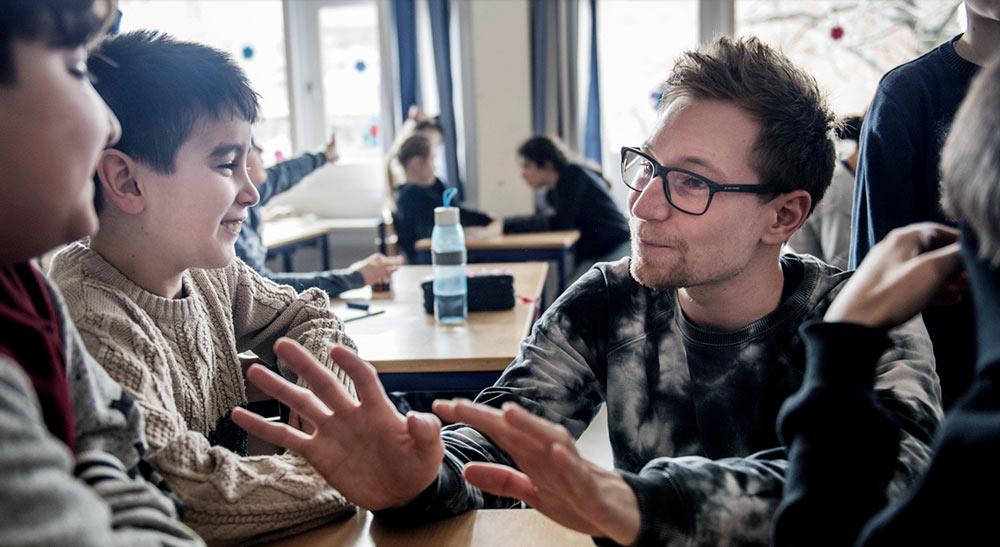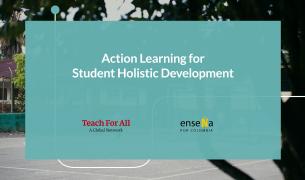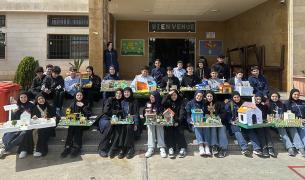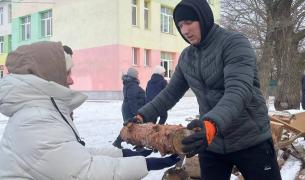How Demystifying Math for Parents Helped My Students Become Better Learners

The journey to starting Homework Pilots (Danish name: Lektiepiloter) began in 2012 when I volunteered for the organization Matematikcenter, where I helped young people aged 13 to 17 with their math homework. It was a nice place to practice my teaching skills, but I quickly realized that what we think of as the highly egalitarian and well-developed welfare state of Denmark had a hidden but severe problem. The students I met as a volunteer not only found math challenging, they were terrified of it. From that point on I became aware of many people’s difficult relationship with one of the most vital subjects in school and society.
The lack of adequate skills in math is not only a problem for the individual student but also one of the biggest threats to democracy and equality. How can you fully participate in a democratic process when basic math can trick you? It becomes even worse when political decisions are based on advanced mathematical models or when gadgets in your pockets have the ability to manipulate you through sophisticated algorithms. I became curious: How did these young students become so anxious about math? I loved math and couldn’t imagine myself without my math skills. Back then, I was still an engineering student, but my journey to the other side of the teacher’s desk had begun.
In 2015 I applied for the first cohort of Teach First Danmark and was accepted. It was an amazing experience right from the start, beginning with the people. I met the most inspiring and hardworking people who all contributed to an atmosphere of growth and passion. I saw the power of being a role model and how far a quality education can take a child. And I felt like I delivered effective and well-prepared lessons in my third grade classroom every day—but for some kids that wasn’t enough. When the school day was over, they would go home to parents who had never been taught the math skills they needed to help their children with their homework. I was frustrated, but realized that all parents want to do their best, and I learned that many parents tried to help their children as best they could.
The supportive atmosphere of Teach First Danmark inspired me to try new ways to solve the problem. What would happen if I invited my pupils’ parents to participate in a two-hour lesson on how to help their children with math homework? Not teaching them math, exactly, but teaching them how to support their children. I had to try it.
I was thrilled to find that the experiment was a great success. Many parents were relieved when they saw that they weren’t alone and shared that they felt more self-sufficient after participating. I repeated the lessons so others could gain the same knowledge and confidence. Sadly, not all of my students’ parents chose to attend, and a new challenge emerged: how to encourage more to join—particularly those who needed it the most.
In 2017 I had the opportunity to attend an event with teachers from across the Teach For All network, and I realized that it wasn’t just in Denmark that teachers struggled with how to engage parents more in their children’s studies. These discussions inspired me to develop a more structured and conceptualized program and to constantly be curious about how to involve all parents.
Last year, with the help of a grant from Egmont Fonden, Homework Pilots was born. I expanded the program from one school to eight, and met many parents struggling with the same problems as those at my own school—problems that Homework Pilots aims to minimize.
The support Homework Pilots provides is focused in three areas: routines, language and dialogue, and hypotheses and errors. Routines is about finding the right way and time to open up a conversation about a child’s experiences at school academically and socially. With language and dialogue, I help parents understand how learning math is highly dependent on language—if you want children to comprehend something abstract, you need to use words they understand rather than just technical terms to support your explanation. By discussing hypotheses and errors my aim is to make parents aware of errors that might not be obvious immediately, but, if identified can be addressed to improve learning.
With Homework Pilots I hope to support parents across the country in finding motivation and courage to help their children with math homework, even if they find math difficult themselves. Ultimately, I believe the ideas behind Homework Pilots are not limited to math, and in the future I hope to see the concept applied to other subjects and adapted in other countries where parents and students struggle with the same problems.


